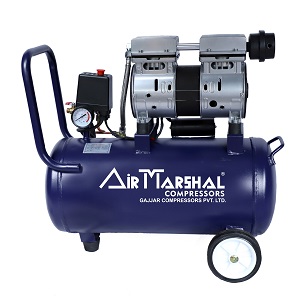Enhancing Efficiency and Longevity for Your Air Compression System
Air compressors are essential tools in various industries, powering a wide range of applications from manufacturing and construction to automotive repair and beyond. However, the key to ensuring their reliable performance lies in understanding the intricate role that parts and accessories play in their operation. In this article, we’ll delve into the world of air compressor components and discuss how the right parts and accessories can significantly enhance the efficiency and longevity of your air compression system.
Understanding the Heart of the System: Air Compressor Parts
An air compressor is a complex piece of machinery that relies on several crucial components working in harmony. These components include:
Compressor Pump: The heart of the air compressor, responsible for drawing in and compressing air.
Motor: Powers the compressor pump and keeps the entire system running.
Tank: Stores the compressed air and helps regulate pressure fluctuations.
Pressure Switch: Monitors the tank’s pressure levels and controls the compressor’s on/off cycles.
Safety Valves: Prevent over-pressurization by releasing excess air if pressure levels become too high.
Pressure Gauges: Provide real-time pressure readings, allowing for monitoring and adjustments.
Optimizing Performance with Accessories
While these core components are vital, the role of accessories in enhancing an air compressor’s performance should not be underestimated. Here are several essential accessories that can make a significant difference:
Air Filters: Clean air is critical for the longevity of an air compressor. Air filters trap contaminants and prevent them from entering the system, reducing wear and tear on components.
Regulators and Lubricators: Regulators maintain consistent pressure levels, while lubricators ensure that moving parts are well-lubricated, reducing friction and extending the system’s lifespan.
Hoses and Fittings: Properly sized hoses and fittings minimize air loss, ensuring that the compressed air reaches its intended destination efficiently.
Drain Valves: Condensation can accumulate in the tank, leading to corrosion. Drain valves help remove this moisture, prolonging the tank’s life.
Maintenance: The Key to Longevity
To maintain peak performance, regular maintenance is essential. This includes:
Cleaning or Replacing Air Filters: Dirty filters can hinder airflow, increasing energy consumption and strain on the system.
Checking for Leaks: Even small air leaks can reduce efficiency. Regularly inspect hoses, fittings, and connections for leaks.
Monitoring Oil Levels: If your compressor uses oil, ensure it’s at the correct level. Regular oil changes are also necessary to prevent wear.
Inspecting Belts and Pulleys: Loose or damaged belts can disrupt the system’s operation. Replace them as needed and ensure proper tension.
In the world of air compressors, the seamless interaction of parts and accessories is crucial for maintaining optimal performance. Understanding the functions of each component and accessory, along with regular maintenance, can ensure that your air compression system operates efficiently and serves you well for years to come. Whether you’re running a small workshop or a large industrial facility, investing time and attention into your air compressor’s components and accessories will undoubtedly pay off in increased productivity and reduced downtime.







